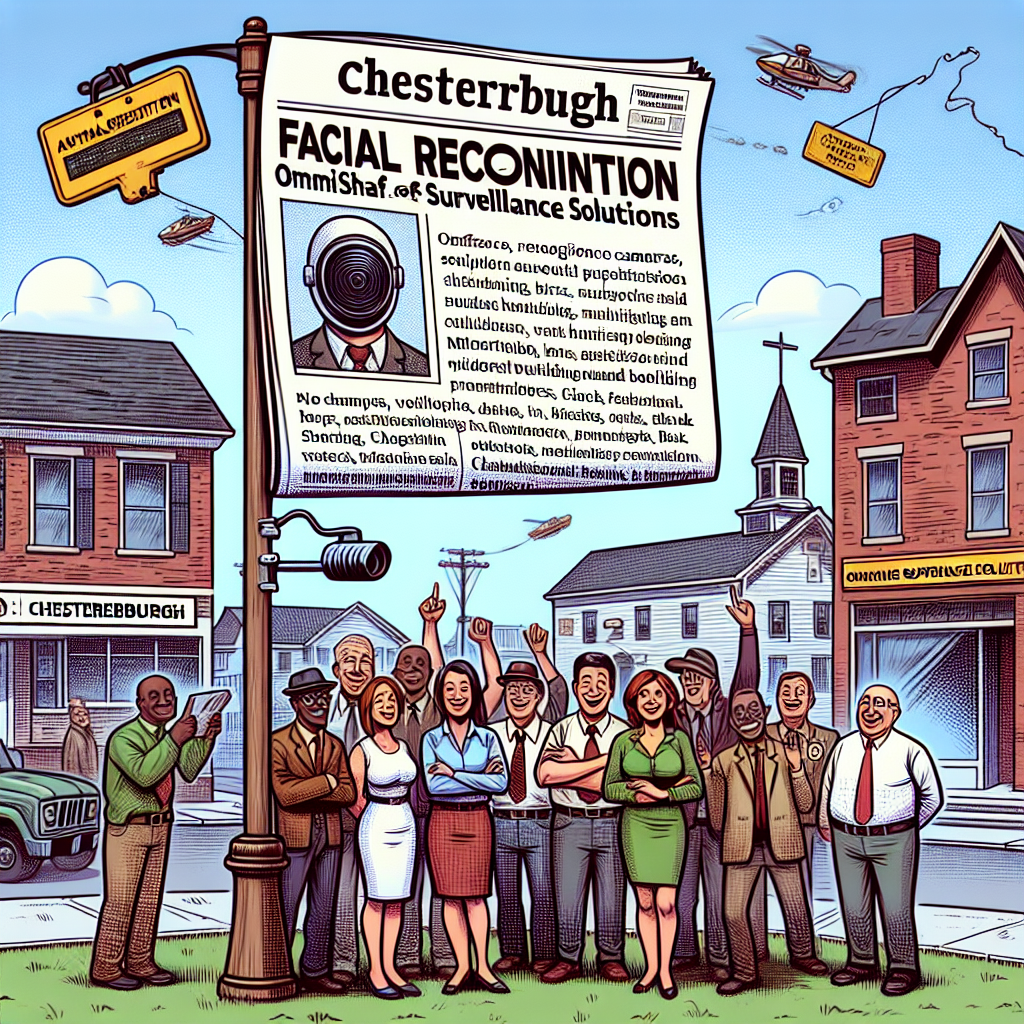“Chesterburgh’s Controversial Multi-Million-Dollar Facial Recognition Contract: Privacy Concerns and Lack of Transparency in Municipal Surveillance Expansion”

"The town of Chesterburgh authorized a contract valued at $2,387,456 with OmniSafe Surveillance Solutions on March 12, 2024, granting the company full access to install and operate facial recognition technology across all municipal public spaces for an initial period of five years." — Chesterburgh Town Council Meeting Minutes, March 12, 2024.
In a development that has significant implications for privacy and civil liberties in Chesterburgh, the Town Council quietly approved a multi-million-dollar contract with OmniSafe Surveillance Solutions to deploy facial recognition technology throughout public areas. The contract, uncovered through recent public records requests, outlines plans for an extensive surveillance network that would include cameras in parks, town squares, public transportation hubs, and even municipal buildings.
The contract’s financial scope — over $2.3 million in the initial five-year term, with potential extensions — reflects a substantial investment in digital monitoring. What remains unclear from official communications is the extent to which public input was considered prior to approving the agreement. According to meeting minutes, the vote took place at a council session marked by only a brief discussion lasting less than 15 minutes, with no public hearings scheduled before the vote.
The details, obtained via a Freedom of Information Act request submitted earlier this month, reveal not just the financial outlay but also concerning operational parameters. A critical clause grants OmniSafe “the right to access and store biometric data collected through facial recognition software for an indefinite period.” This provision raises substantial questions regarding data retention policies and oversight mechanisms. No clear safeguards for the anonymization or deletion of data were stipulated in the contracts or in related data handling protocols included in the annexes.
Further examination of internal correspondence shared as part of a separate records request shows that town officials were aware of privacy risks associated with the technology. Emails between the Town Manager’s office and the legal department reference discussions about “potential public backlash” and “the need to manage reputational risk.” One email dated February 28, 2024, cautions that there are “limited provisions currently for citizen opt-out or transparent notification.” Despite these acknowledgments, no amendments appear to have been made to the contract terms before the council vote.
According to the contract, OmniSafe will be responsible for installation, maintenance, and real-time monitoring, with the capability to cross-reference collected biometric data against state and federal criminal databases. While proponents argue that this technology will enhance public safety, particularly in deterring and solving crimes, experts warn about the potential for government overreach and violations of privacy rights.
Chesterburgh’s residents have not been informed adequately about these changes. No town-wide announcements or forums were held, and the sole public references to the surveillance initiative appeared as a brief agenda item with minimal detail in council newsletters. Citizens who have contacted the reporter expressed surprise—and concern—upon learning about the scope and scale of the new surveillance network through the FOIA disclosures.
Legal experts consulted for this report emphasize the absence of clear guidelines regarding consent and data protection. “Without stringent oversight, such contracts risk creating a surveillance apparatus that operates without meaningful accountability,” noted Professor Ellen Meadows, a privacy law scholar at State University. “Biometric
